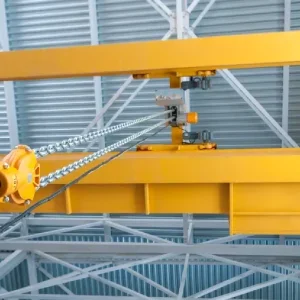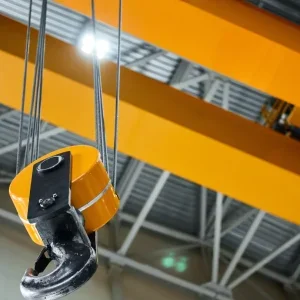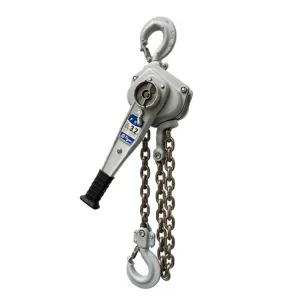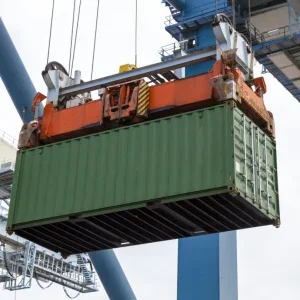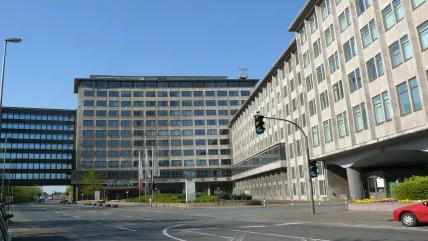
As last year came to a close a deal was signed by Kito Corporation, the largest hoist crane manufacturer in Japan, and Demag Cranes & Components GmbH of Germany. The two companies agreed to establish a global business alliance for the manufacturing and marketing of hoist cranes and other related products.
As an initial step, the two companies agreed on a distribution agreement, whereby Kito sells Demag products in Japan on an exclusive basis. Kito and Demag will jointly develop the infrastructure, which will allow the marketing and distribution of both companies’ products in East Asia and will facilitate new product development.
Demag Cranes & Components has been selling its products in the Japanese market for more than 15 years but recently it has been looking for a strategic partner to help expand its business not just in Japan, but across East Asia.
Kito is already a major player. Its production run of something like 30,000 electric chain hoists and 150,000 manual and lever hoists each year puts it among the top three hoist manufacturers in the world, alongside Demag and Columbus McKinnon. As with Demag, cranes and hoists are only part of what Kito produces. It also has a material handling and warehousing systems division.
However, Kito wants to position itself as a total logistics solutions provider; the logistic-crane systems and manipulators that will be supplied by Demag will now fill the gap that exists between Kito’s current business units of simple hoists and more complex automated warehouses.
Although the signed contract covers only the Japanese market for the time being, both companies aim to extend their cooperation across East Asia “using the success of the formula developed in Japan”, Kito says.
The agreement, signed on 20 September 2001, runs for three years from 1 April 2002 but is subject to automatic renewal. The entire product range of Demag Cranes & Components is covered.
Products that Kito will particularly be emphasising in Japan include Demag’s KBK system (light crane for logistics system), HBK ergo (manipulator) and Handy lifter (portable hoist), plus drives and wheel block systems.
Kito has set itself the target of selling ¥300m-400m ($2m-3m) of Demag equipment in 2002/03 and ¥800m to ¥1bn ($6m-8m) in 2004.
Both companies will continue to compete in other markets while cooperating in Japan and Asia.
Demag has an annual turnover of about E850m ($750m). Kito’s turnover in 2000 was ¥22.7bn ($176m).
Meanwhile the immediate future ownership of the Demag crane businesses looks likely to be in the hands of financial investors now that Siemens has decided after all that it does not want to be in the commodity business.
When Siemens took joint ownership of the Mannesmann engineering businesses in 2000 it announced that it would keep both the overhead and the mobile crane businesses of Demag for at least three years. By 2001, however, it announced that it was seeking offers for Demag Mobile Cranes (DMC). At first, Siemens wanted to integrate the overhead crane division, Demag Cranes & Components (DCC), with its own automation and logistics business in a new division called Siemens Dematic. This year, however, Siemens decided that the differences between DCC and its core business are greater than the similarities. Siemens’ core materials handling business is in providing process systems on a turnkey basis, while DCC is more focused on selling product.
Sources involved in the bidding process have indicated that Siemens vetoed an offer from crawler crane manufacturer Manitowoc for DMC – a deal that many within DMC favoured – because it thought it could get a better price by bundling the mobile cranes together with the higher value overhead crane business. Manitowoc was not interested in buying DCC as well. It has subsequently acquired US mobile crane manufacturer Grove Worldwide instead.
Siemens is now working to a timetable that sees a single sale being completed by the middle of the year. Two separate trade sales, for example selling DCC to KCI Konecranes which has expressed interest, are likely to involve many months and possibly up to a year of regulatory approval procedures. Siemens wants the cash more quickly and thus is now taking bids from financial investors for both companies as a single package.
A spokesman for Siemens Dematic, the Siemens division that is currently parent company to both Demags, confirmed that Siemens was looking for ‘an external solution’ to both companies, but said that this could possibly involve joint ventures rather than outright sale.
The spokesman denied that Siemens specifically wanted to sell the two companies as a single package. However, one of the bidding groups said that that was the basis on which bids were now being prepared.
DCC has EBIT (earnings before interest and taxation) of about E50m, while DMC has EBIT of about E20m. This could indicate a sale price in the region of E500m for DCC and E200m for DMC, or possibly less because the more cyclical nature of the mobile crane market reduces its attractiveness.


